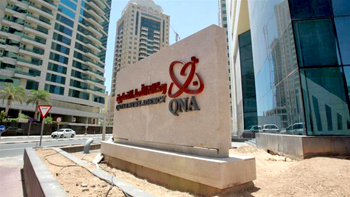Qatar, Jul 17: The United Arab Emirates arranged for Qatari government social media and news sites to be hacked in late May in order to post false quotes linked to Qatar's emir, prompting the Qatar-Gulf diplomatic crisis, the Washington Post reported on Sunday, citing US intelligence officials.

The Qatari emir, Sheikh Tamim bin Hamad Al Thani, had been falsely quoted in May as praising Hamas and saying that Iran was an "Islamic power," the Post reported. In response, Saudi Arabia, the UAE, Egypt and Bahrain cut diplomatic and transport ties with Qatar on June 5, accusing it of supporting "terrorism". Qatar strongly denies the allegations.
Qatar said in late May that hackers had posted fake remarks by the emir, an explanation rejected by Gulf states.
The Post reported that US intelligence officials learned last week of newly analysed information that showed that senior UAE government officials discussed the planned hacks on May 23, the day before they occurred.
The officials said it was unclear if the UAE hacked the websites or paid for them to be carried out, the newspaper reported. The Post did not identify the intelligence officials it spoke to for the report.
UAE Ambassador to the US Yousef al-Otaiba denied the report in a statement, saying it was "false," the Post said.
"What is true is Qatar’s behaviour. Funding, supporting, and enabling extremists from the Taliban to Hamas and Qadafi. Inciting violence, encouraging radicalisation, and undermining the stability of its neighbours," the statement said.
The Federal Bureau of Investigation was previously known to be working with Qatar to probe the hacking.
Al Jazeera's Heidi Zhou-Castro, reporting from Washington DC, said this is new information and the US State Department has yet to officially respond.
"These are certainly developments that will be analysed and will have a major role to play in negotiations coming up," she said.
"Perhaps this will finally result in some movement."
US Secretary of State Rex Tillerson on Thursday returned to the US from his shuttle diplomacy in the Gulf region to try to resolve the dispute. His visit had yielded little except for a bilateral agreement between the US and Qatar to fight "terrorism".
"Tillerson's spokesperson has said that [Qatar-Gulf crisis negotiations] may be a long process to find any sort of common ground in resolving this conflict," said Zhou-Castro.
"But with this new information - that certainly throws a wrench in these negotiations - it remains to be seen exactly where things will go."
Qatar said in June it had proof that the recent hacking of its state-run news agency and government social media accounts was linked to countriesthat have recently cut ties with it.
"Qatar has evidence that certain iPhones originating from countries laying siege to Qatar were used in the hack," Ali Bin Fetais al-Marri, Qatar's attorney general, told reporters in the capital, Doha, on 21 June.
Khalil Jahshan, executive director at the Arab Center Washington DC, told Al Jazeera the revelations are the most important development so far since the beginning of the crisis and undermined the Emirati position.
"It illustrates that Qatar, from the very beginning of this crisis, by inviting both US and British intelligence services to help investigate this was a step in the right direction," he said
"And now the results are out in public and they confirm that hacking has taken place and the quotes that precipitated this crisis by the emir of Qatar were fabricated and resulting from this hacking."
Jahshan said the revelations should have an impact on the mediation efforts, although the signs during the crisis so far have not been encouraging.
"It's denial after denial after denial. They [the UAE] claim that basically their demands from Qatar are legitimate and they insist that they should be fulfilled almost as a diktat instead of sitting at a table and negotiating some legitimate differences that they might have with Doha, and somehow unfortunately Saudi Arabia has followed suit," said Jahshan.
"So the failure, if you will, or at least temporary failure of Tillerson is not going to change unless there is a change of attitude on the part of the Emirates in particular."








Comments
Add new comment